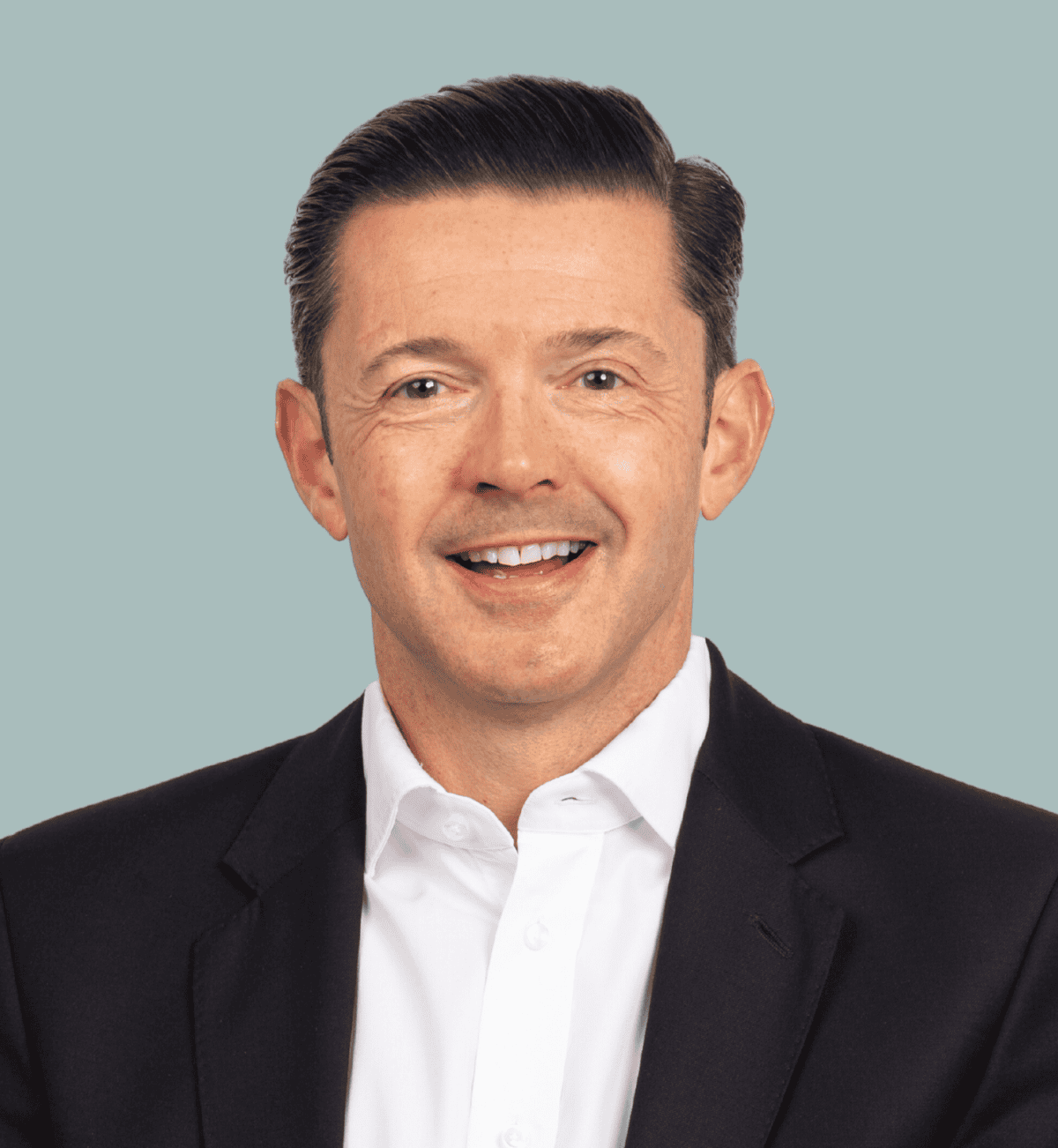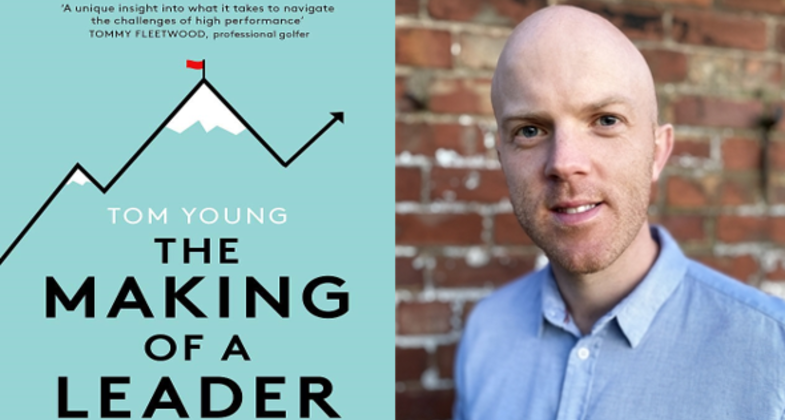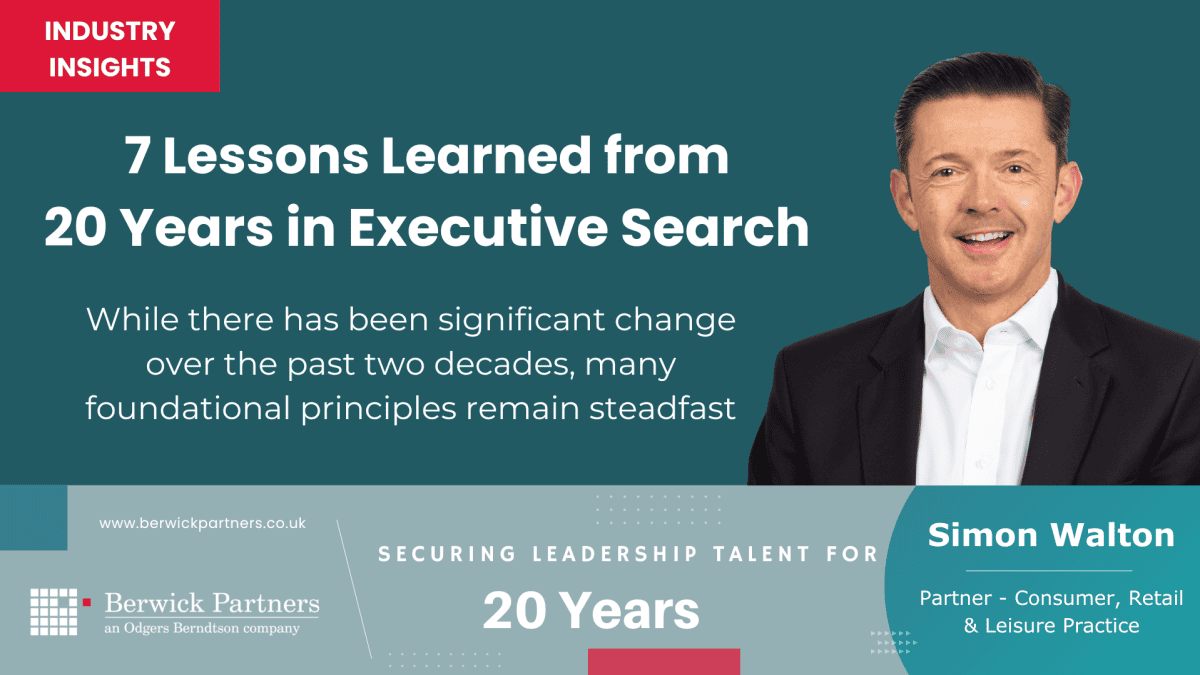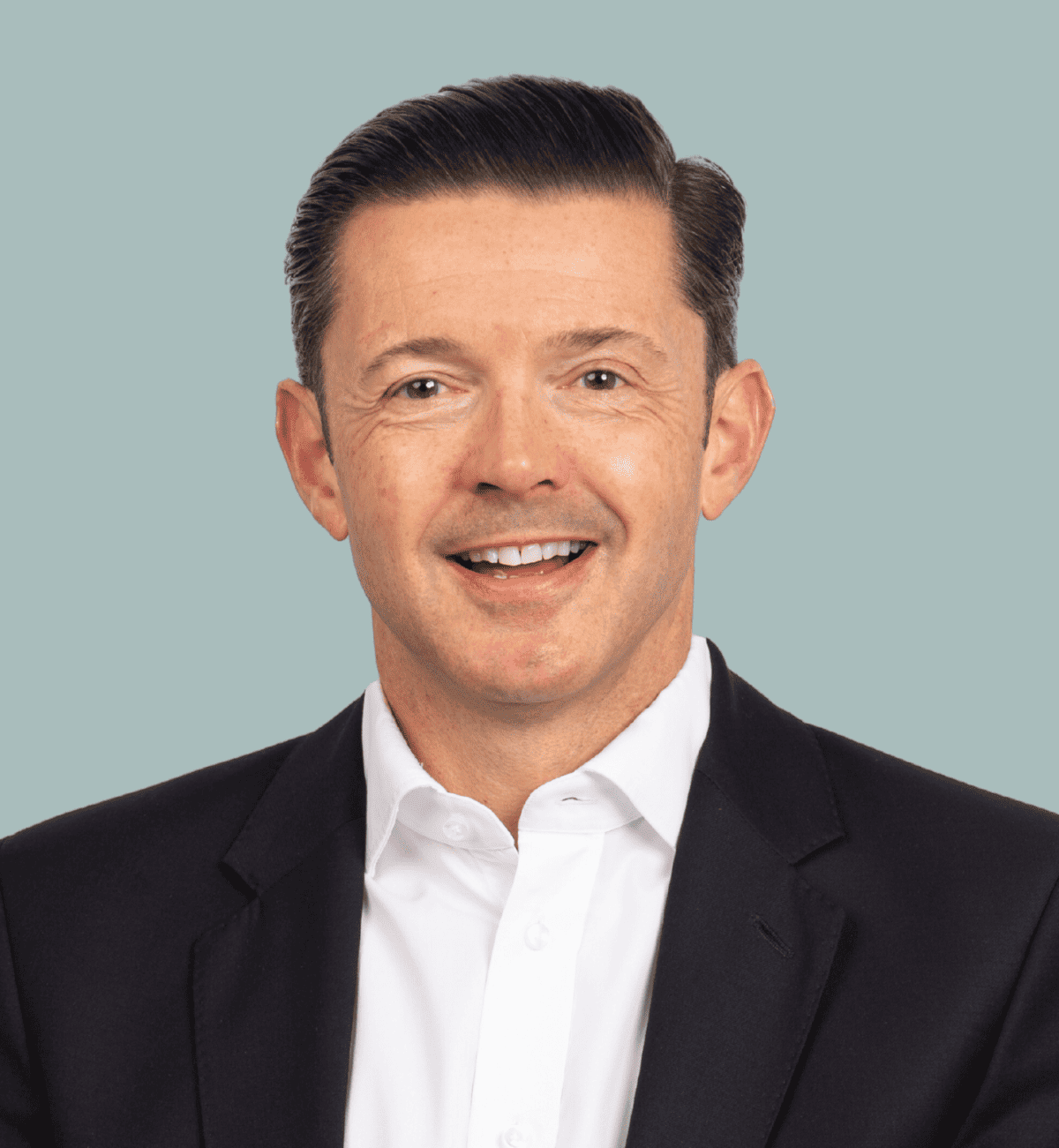The Evolving Leader: An interview with Tom Young, performance psychologist and acclaimed author
The Evolving Leader – Berwick Partners are currently undertaking a series of interviews with key figures, authors and business leaders, to understand how the attributes required to be successful are adjusting to the increasing complexities of the world in which we operate. We are examining the importance of leadership DNA and the behaviours, traits and skills that are vital to develop as you progress your career.
In advance of the full paper we are publishing a series of individual articles on this subject, the latest of which is with Tom Young the performance psychologist and acclaimed author of the recently released ‘The Making of a Leader’.
From polar explorers and politicians to CEOs and sports coaches, we are fascinated with the makeup of leaders. How do they thrive under pressure and inspire others to do the same? How do they establish a culture of long-term success?
What is your view on leadership DNA? What characteristics do you think of when defining someone as a ‘natural leader’ ?
I think it’s easy and almost convenient to use the term ‘natural leader’. It encourages us to label ourselves and each other in quite a reductive way. In my consultancy work, I will often pick up and challenge comments like “I’m not a leader” or “I’m not extrovert enough to lead”.
When researching the book, I wanted to test the notion that leadership is reserved for a select few who possess a specific combination of traits. From my interviews with head coaches, I found a whole host of different characters and personality styles. For instance, some were more extrovert, while others could be more reflective. One might have an assertive decision making style, while another would be more cautious in their approach.
That being said, there were common themes to be found amongst successful leaders. Leaders demonstrated a sense of resilience, a quality that can often be traced back to their formative years. In sport, one of the few things you can guarantee is that you will have setbacks and defeats. Each individual leader that I spoke to had experienced perceived ’failure’ at some point. The leader cannot guarantee victory, but he or she can ensure they apply a rational mindset to both success and failure. Regular reflection is another component of elite performers. They are always willing to take the lessons and evaluate themselves intrinsically before moving forward. Finally, independent of different decision-making styles, I found leaders had the courage to make and commit to tough decisions.
Who do you think will be more effective; the ‘natural leader’ or someone who has developed their leadership through extensive training & development?
That’s a really good question. I think there has to be a genuine interest in developing and nurturing others. You have to care and have a level of empathy – and that’s something that you can’t necessarily learn on a course or in a book. Crucially though, you can be both empathetic and assertive.
With that foundation, training and development really comes in to its own, giving people knowledge, methods and processes to apply to their leadership. Ashley Giles, when selecting his captain at Lancashire, looked for a good person first, saying “you can bolt skills on to good people” – and he’s right. But the values have to be there; people can tell if you’re faking it.
The key is finding your own method of leadership. You might be someone who leads by example, through quality and work ethic. Or you might be someone who leads through the enduring nature of the relationships and trust that you build. Do not underestimate your capability to lead.
What do you think have been the biggest shifts to the attributes of successful leaders in the last decade?
I think we’re moving away from the command and control approach, and from the assumption that teams need a ‘charismatic leader’, someone who is typically extrovert and assertive. Today, I hear people explore concepts like relationships, trust, and vulnerability, words that perhaps we wouldn’t have encountered as much in the past. In the documentary ‘The Edge’ (highly recommended), around the successful England cricket team, Head Coach Andy Flower looks back, reflecting that if he had the time again he’d pay more attention to the people; rather than focusing predominantly on the results. Listen to Eddie Jones, perceived as gritty, tough, and aggressive, speak and he will often mention the importance of relationships and understanding the individual.
During this difficult time across the globe, one of the most effective leaders has been New Zealand’s Prime Minister, Jacinda Ardern. She talks about ‘we’ not ‘I’, she’s built a relationship of trust with the people she represents and she genuinely cares: “One of the criticisms I’ve faced over the years is that I’m not aggressive enough or assertive enough, or maybe somehow, because I’m empathetic, it means I’m weak. I totally rebel against that. I refuse to believe that you cannot be both compassionate and strong.”
What leadership traits and behaviours are going to be most important for your business in the next decade?
My business is small and dynamic, I don’t lead a big team of people. So, for me there are three areas. The first is focus. I try to work strategically, looking to partner with other organisations to develop products and services that make psychology accessible and applicable. I need to ensure I keep an eye on the big picture, and the direction and priorities of the business, while still maintaining the benefits of an agile company.
The second is relationships. I don’t have a big team but I build relationships with clients and partners. The same principles apply. Understand the people you’re working with, their personal drivers, and look to align with them. For me, I enjoy ownership and accountability, but working together is always more rewarding than working alone.
Finally, I’d say balance is a trait I need to really focus on maintaining. With two young children, I find it hard to be present sometimes. Lockdown has impacted that, and I now see the value in the small and fleeting moments.
What have you seen recently that represents best in class for leadership?
During the COVID-19 outbreak, the most effective leaders have been present, they’ve communicated, they’ve listened. They have communicated even when there is nothing new to say. They’ve been honest, not avoided the key issues, and they’ve offered some optimism.
People want to trust in their leaders and, when they do, the leader themselves become part of the reason others want to succeed. Proactively checking in with people, hosting regular zoom calls, taking the opportunity to develop people in a way they wouldn’t have been able to do, or having a deeper conversation than usual. At difficult times, people don’t need fancy mission statements, they want to know they can trust the leader they look to.
Are leaders born or built?
I’m probably going to be accused of sitting on the fence here. I believe we are born with certain inherent characteristics, for arguments sake, let’s say 50%. The other fifty percent comes from our experiences and conditioning; and combined this makes us what we are, as people and therefore as leaders.
That is, after all, what leaders are. They’re just human beings, who happen to be good at what they do. We should resist the temptation to place leaders on too much of a pedestal, as though they are almost mythical entities. Like all of us, they have strengths and flaws, hopes and fears, limiting beliefs and irrational thoughts.
During my interviews, it was apparent that for many, the ascent to leadership roles was not part of a grand plan, but something that they rather fell in to. Some, like Gary Kirsten, Sean Dyche and Roberto Martinez captained teams as players, while others evolved as leaders in a different way.
Sometimes, those we feel are natural leaders are not the ones who are ultimately successful in the role. Of the famous Chicago Bulls, it is not Michael Jordan who is a head coach in the NBA, it is Steve Kerr, who played a crucial yet less celebrated role in the team’s success. I don’t think he would describe himself as a ‘born’ or ‘natural’ leader, but his courage and ability to build relationships with those around him has brought about huge success as both a player and coach.
So, leaders are both born and built – you don’t have to be born with a certain set of attributes, rather you can build on your own strengths to identity a congruent style of leadership that fits your personal values.
Tom Young is a Performance Psychologist working in business and elite sport. Most recently he has been part of the coaching team to PGA Tour and Ryder Cup golfer Tommy Fleetwood and worked as a consultant to both the Belgian national team ahead of the World Cup in Russia; and the victorious European Ryder Cup team in Paris 2018.
Tom’s recently released book, ‘The Making of a Leader’ is an inspiring guide to leadership that can inspire positive results in any context, based on interviews and experiences from the cutting edge of elite sport. The book is out now – https://amzn.to/2Tg3Ebf
Simon Walton is Head of the Consumer Practice at Berwick Partners, specialising in recruiting senior management and leadership roles across the sector.






